Space
Sign up for our newsletter
We summarize the week's scientific breakthroughs every Thursday.
-
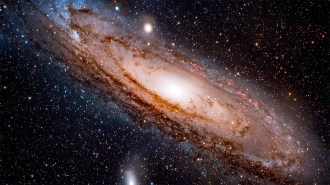 Astronomy
AstronomyAndromeda’s and the Milky Way’s black holes will collide. Here’s how it may play out
Supermassive black holes in the Milky Way and Andromeda will engulf each other less than 17 million years after the galaxies merge, simulations show.
By Sid Perkins -
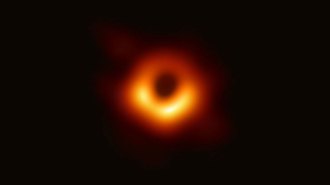 Physics
PhysicsBlack hole visionaries push the boundaries of knowledge in a new film
‘Black Holes: The Edge of All We Know’ follows researchers with the Event Horizon Telescope and other physicists working to understand black holes.
-
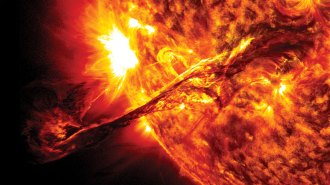 Space
SpaceSolar storms can wreak havoc. We need better space weather forecasts
Solar storms can devastate power grids and other systems on Earth. We need better forecasting
By Ramin Skibba -
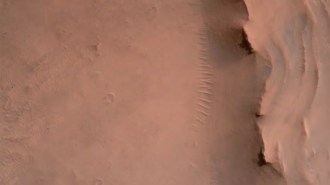 Planetary Science
Planetary ScienceWatch real video of Perseverance’s Mars landing
NASA’s Perseverance rover filmed its own landing on Mars. Here’s that video.
-
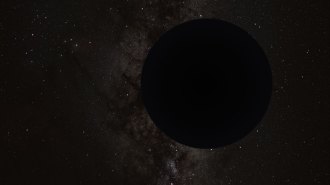 Astronomy
AstronomySigns of a hidden Planet Nine in the solar system may not hold up
Hints of a remote planet relied on clumped up orbits of bodies beyond Neptune. A new study suggests that clumping is an illusion.
-
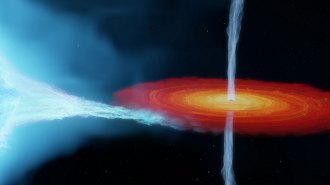 Astronomy
AstronomyThe first black hole ever discovered is more massive than previously thought
New observations of Cygnus X-1 are leading astronomers to rethink what they know about stars that turn into black holes.
-
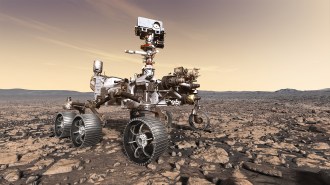 Planetary Science
Planetary ScienceNASA’s Perseverance rover has touched down on Mars
The spacecraft will arrive at Mars on February 18, joining missions from China and the United Arab Emirates.
-
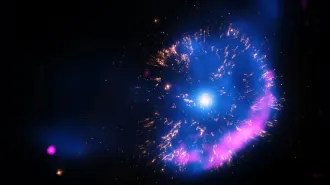 Astronomy
AstronomyThe number of Milky Way nova explosions per year has been pinned down
Knowing how frequently these stellar eruptions occur will help determine their contribution to the galaxy’s chemical makeup.
By Ken Croswell -
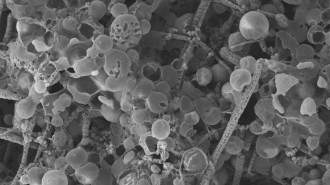 Earth
EarthFossil mimics may be more common in ancient rocks than actual fossils
Evidence of early life may be harder to preserve than pseudofossils — structures that form abiotically but resemble living remnants.
-
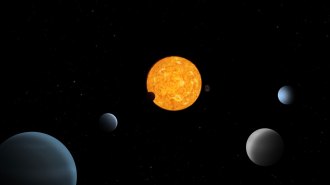 Astronomy
AstronomyTwo exoplanet families redefine what planetary systems can look like
The TRAPPIST-1 and TOI-178 systems, both home to multiple bunched-up planets, have densities and orbits that defy expectations.
-
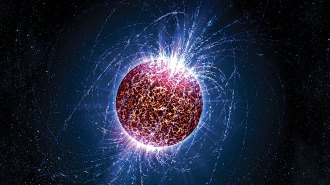 Cosmology
CosmologyEinstein’s theory of general relativity unveiled a dynamic and bizarre cosmos
Albert Einstein’s theory of general relativity foretold space-bending beasts, cosmic shock waves and mysterious forces.
-
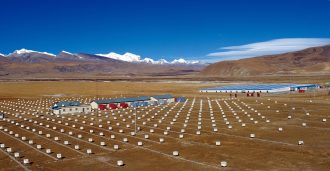 Physics
PhysicsThe Milky Way’s newfound high-energy glow hints at the secrets of cosmic rays
Gamma rays with energies approaching a quadrillion electron volts emanate from the disk of the Milky Way.